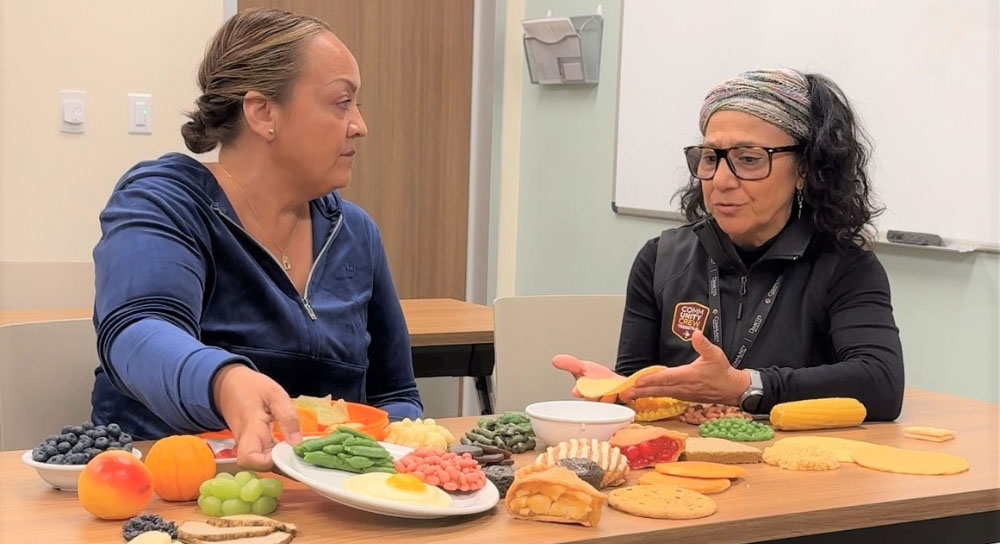The contribution is part of Community’s mission to address our region’s identified health needs as described in the Community Health Needs Assessment, a collaborative effort between Hospital Council of Northern and Central California and eight regional hospitals and public health department partners.
That mission includes partnering with regional organizations to ensure Community resources are used wisely and have the greatest impact. The donation to the American Heart Association furthers blood pressure education efforts here in the Central Valley.
Through local WIC offices, pregnant and new mothers were identified as in need based on a blood pressure test administered in-office. Those found at risk were given blood pressure kits to take home, as well as education about the importance of regular monitoring and lifestyle changes.
Hypertension-related risks in pregnancy
Dr. Subhashini Ladella, medical director of maternal fetal medicine at Community, encourages anyone who is pregnant or planning for pregnancy to create a healthier lifestyle to help lower their risk of hypertension and some of the other complications that can come along with it."Eating a well-balanced diet rich in nutrients, fruits, vegetables and low salt intake — as well as getting regular moderate-intensity exercise, managing stress and having adequate sleep — all play a vital role,” Dr. Ladella said.
Pregnancy-related hypertension, or gestational hypertension, is high blood pressure that occurs in the second half of a pregnancy (after 20 weeks). If not caught early, it can have adverse effects on both mother and baby.
For the pregnant person, these complications can include, but are not limited to:
- Risk of preeclampsia, seizure or stroke
- Placental abruption (a life-threatening occurrence where the placenta partially or completely separates from the uterus)
- Liver or kidney problems
- Cardiovascular/heart disease soon after delivery or later in life
- Higher rates of a C-section delivery
High blood pressure in the mother can result in less food and oxygen — nutrients that are essential in the development of a fetus — making its way through the placenta. This can result in complications for the baby, such as:
- Premature or preterm birth (preterm birth is when birth occurs before the 37th week of pregnancy is completed)
- Low birth weight
- Higher rates of neonatal intensive care unit (NICU) admissions
- Stillbirth or neonatal death
In Fresno County, the preterm birth rate is 10%, compared to the rest of the state at 9.2%, according to the 2024 March of Dimes report card. The most recent study from the Centers for Disease Control and Prevention found that preterm birth among black women was about 50% higher than white or Hispanic women.
“Keeping up with regular prenatal visits is one of the best things you can do to help your doctor monitor your health and assess any symptoms that may lead to hypertension-related risks for you and your baby,” said Dr. Ladella.




